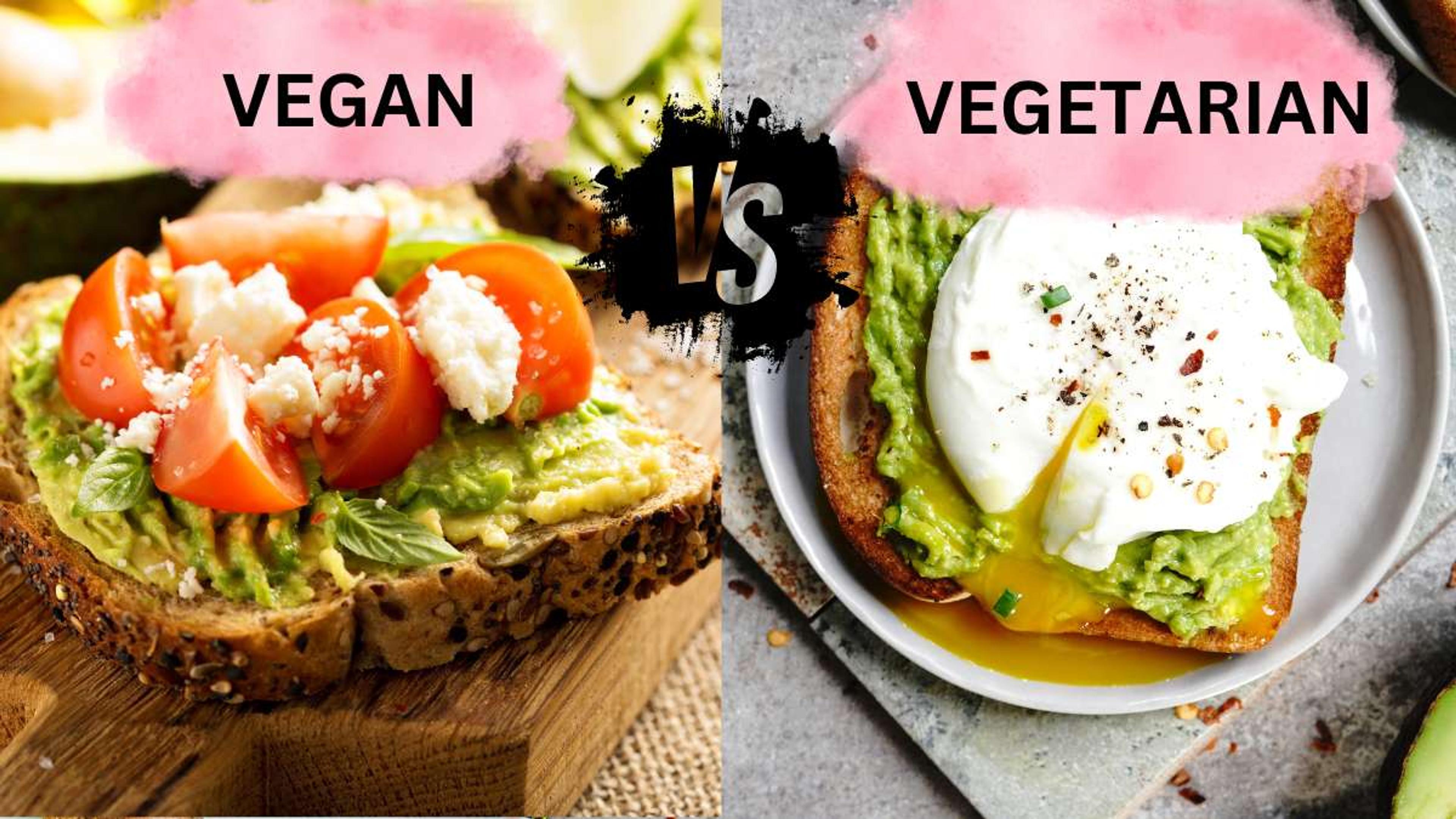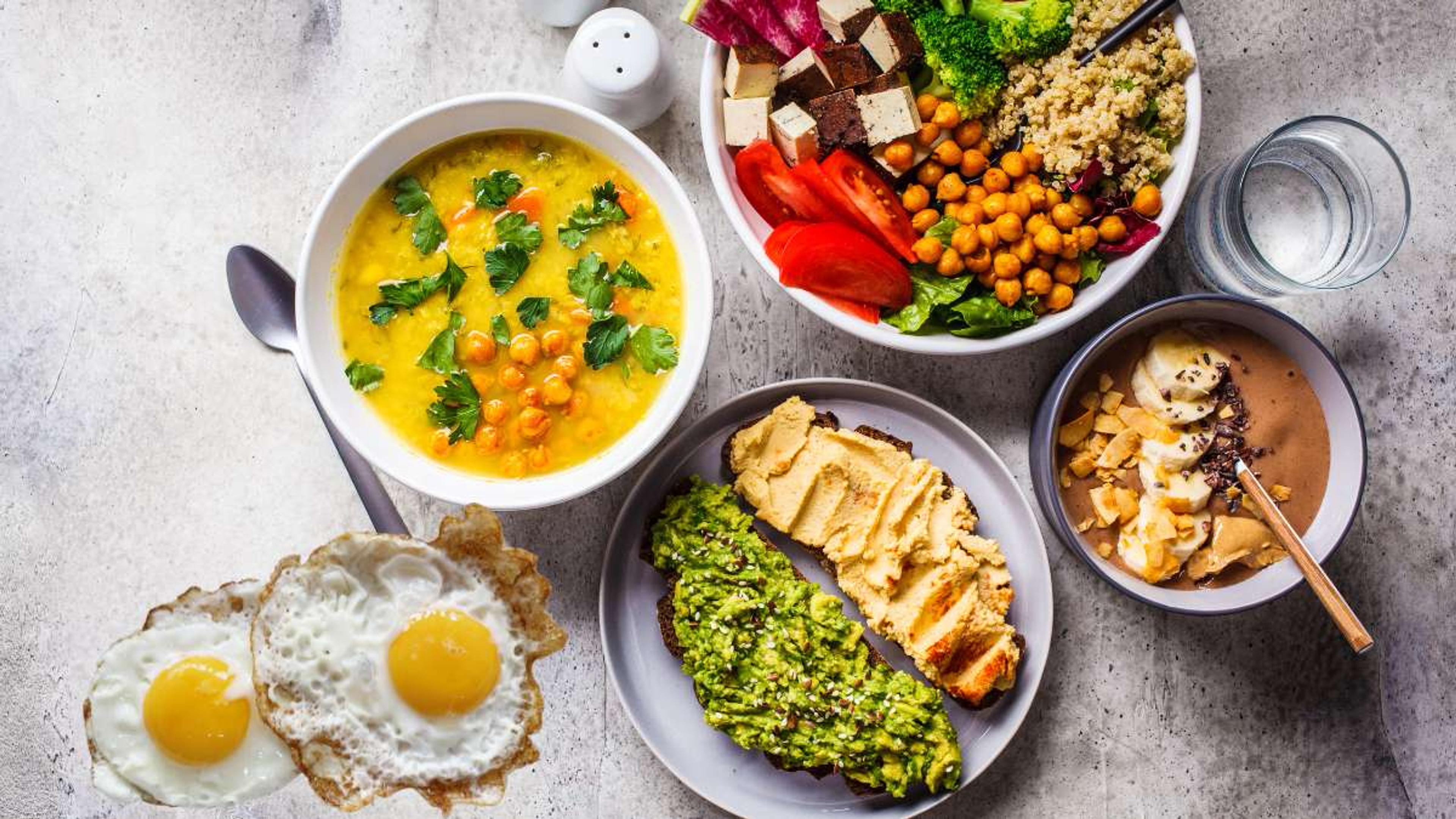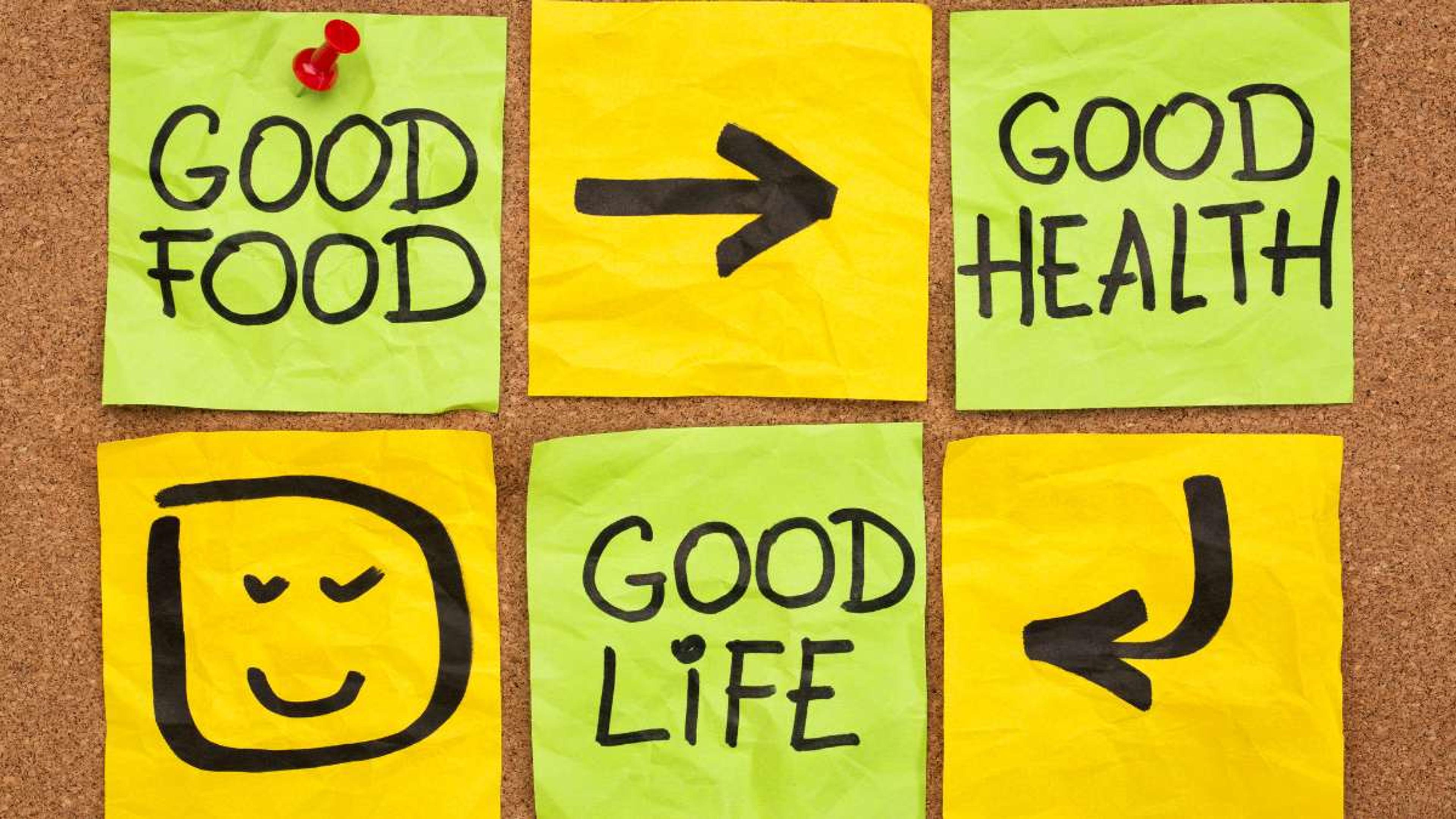Vegan vs Vegetarian: Understanding the Differences

- Key Takeaways
- Defining Veganism and Vegetarianism
- Core Differences
- Ethical and Philosophical Differences
- Health Implications and Benefits
- Environmental and Sustainability Aspects
- Choosing Between Vegan and Vegetarian Diets
- Conclusion
- FAQs
Are you curious about the differences between being vegan and vegetarian? Let's explore!
If you're struggling to understand which lifestyle is right for you, this blog will break it down in simple terms. Get ready to make an informed decision about your plant-based journey.
Key Takeaways
- Vegan diets exclude all animal products, while vegetarian diets allow for some animal by-products like dairy and eggs.
- Vegans have a strong belief in avoiding all forms of animal exploitation and cruelty, while vegetarians primarily focus on not consuming animal flesh but may still consume by-products.
- Both vegan and vegetarian diets have health benefits, such as lower risk of heart disease and obesity. However, it's important to carefully plan meals to ensure adequate nutrition is obtained.
- Vegan and vegetarian diets have positive environmental impacts, including reduced greenhouse gas emissions, land use, and water consumption compared to traditional animal-based diets.
Defining Veganism and Vegetarianism
Many people now eat only plant-based foods. This type of diet has become very popular. From 2014 to 2018, the number of Americans who chose a vegan diet went up by 600%. Both vegan and vegetarian ways of eating are well-liked.
More people try these diets each day. They avoid animal products like meat, dairy, and eggs. Most do this because they want good health. Others care about animal rights or want to help our planet.
What Defines a Vegan Diet
A vegan diet is a type of plant-based diet that says no to all animal products. It leaves out meat, fish, and poultry. But it's not just these items. Vegans also turn down dairy such as milk or cheese and eggs too. Even honey is off the list because bees make it.
It goes even further than food though. Vegans avoid anything that comes from animals or uses them in any way. They don't wear wool clothes made from sheep's hair or use cosmetics tested on animals.
For vegans, living this way protects animals from harm and treats them fairly.
Common Misconceptions and Distinctions
People often think vegan and vegetarian diets are the same. This is not true.
Vegans do not eat or use anything from animals. No meat, no milk, no eggs, not even honey! It's also wrong to see veganism as a fad or costly choice.
Vegetarians are different. They don't eat animal flesh but they may consume dairy and eggs. Being a vegetarian is more about diet while being vegan touches all parts of life - food, clothes, cosmetics and more! So you see, there's more to these diets than just plant-based foods.
They represent important choices about how we live our lives.
Core Differences

What Vegans and Vegetarians Include and Exclude
Vegans and vegetarians follow different dietary patterns based on their ethical, health, and environmental concerns. Here's a summary of what they include and exclude in their diets;
Vegans & Vegetarians both Strictly Exclude;
- Meat
- Poultry
- Fish
- Seafood
Vegans Strictly Exclude but Vegetarians May Include;
- Dairy Products
- Eggs
- Honey
- Items derived from Animals
The level of restriction is more in veganism, which involves avoiding all animal products and items derived from them.
Vegetarian Diet Variations Explained
There are different variations of vegetarian diets, including lacto-ovo, ovo and lacto vegetarians.
- Lacto-ovo vegetarians do not consume animal flesh but include eggs and dairy products in their diet.
- Lacto vegetarians , on the other hand, do not consume animal flesh or eggs but include dairy products in their diet. This variation allows for more flexibility while still excluding meat.
- Ovo vegetarians, meanwhile, exclude animal flesh and dairy products but include eggs in their diet. This particular variation may be chosen for health reasons or personal preference.
It's important to note that the choice to follow a vegetarian diet can vary greatly from person to person. Some individuals may have different dietary needs or restrictions that influence the variations they choose.
These variations offer flexibility for individuals who want to reduce or eliminate animal products from their meals while still meeting their nutritional needs.
Ethical and Philosophical Differences
Vegans have a strong belief in avoiding all forms of animal exploitation and cruelty, while vegetarians primarily focus on not consuming animal flesh but may still consume by-products like dairy and eggs.
Vegans' Stance
Vegans are committed to avoiding all forms of animal exploitation and cruelty. They believe that animals have inherent rights and should not be treated as commodities. For this reason, vegans strive to exclude the consumption of animal products and the use of materials derived from animals in their daily lives.
This ethical stance goes beyond personal health concerns and extends to considerations about the impact on the environment as well. Vegans view their diet as a way to actively promote compassion, sustainability, and a more humane world for animals.
Vegetarians' Primary Focus
Vegetarians mainly avoid eating animal flesh, but they may still include dairy products and eggs in their diet. This means that while they choose not to eat meat, they might consume other animal by-products like milk and cheese.
It's important to note that the dairy and egg industries have been criticized for their treatment of animals, despite vegetarianism being seen as a more ethical and animal-friendly choice.
Health Implications and Benefits
Research suggests that both vegan and vegetarian diets can have numerous health benefits, such as lower risk of heart disease, obesity, and high blood pressure. However, it is important to consider potential nutritional deficiencies and carefully plan meals to ensure all essential nutrients are obtained.

Health benefits of Both Diets
Shared Health Benefits:
- Heart Health: Both vegan and vegetarian diets are associated with improved heart health due to their emphasis on plant foods. They tend to be low in saturated fats and cholesterol, which can help lower blood pressure and reduce the risk of heart disease.
- Weight Management: Both diets can support weight management and weight loss due to their focus on whole, nutrient-dense foods that are often lower in calories compared to typical Western diets.
- Type 2 Diabetes: Both diets can help improve insulin sensitivity and blood sugar control, making them beneficial for individuals with type 2 diabetes or those at risk of developing it.
- Cancer Prevention: Both diets, with their abundance of fruits, vegetables, and antioxidants, are associated with a reduced risk of certain cancers, particularly colorectal, breast, and prostate cancers.
- Digestive Health: The fiber-rich nature of both diets supports healthy digestion, reduces the risk of constipation, and fosters a healthy gut microbiome.
Unique Health Benefits of Vegan Diet:
- Lower Cholesterol Levels: Vegan diets tend to result in even lower cholesterol levels compared to lacto-ovo vegetarian diets, as they completely eliminate dietary cholesterol from animal products.
- Reduced Risk of Chronic Diseases: Some studies suggest that vegan diets may offer additional protection against certain chronic diseases due to their exclusion of all animal products altogether. This may include a lower risk of obesity, hypertension, and certain types of cancer.
- Environmental Impact: While not a direct health benefit for individuals, a vegan diet has a more substantial positive impact on the environment due to its reduced contribution to greenhouse gas emissions and land use associated with animal agriculture.
Unique Health Benefits of Vegetarian Diet:
- Complete Protein Sources: Many vegetarian diets include dairy and eggs, which provide complete protein sources containing all essential amino acids, aiding in muscle maintenance and overall health.
- Bone Health: A well-balanced vegetarian diet that includes dairy products can offer better calcium intake, promoting strong bones and reducing the risk of osteoporosis.
- Easier Nutrient Intake: Vegetarian diets, especially lacto-ovo vegetarian diets, may be easier to follow for some individuals as they provide a wider range of nutrient sources, including dairy and eggs, which can help meet various nutritional needs.
Potential Risks and Nutritional Considerations for Each Diet
Both vegan and vegetarian diets have certain potential risks and nutritional considerations to keep in mind.
- For vegans, the main concern is the risk of vitamin B12 deficiency since this nutrient is primarily found in animal products. It's important for vegans to ensure they get enough B12 through fortified foods or supplements.
- On the other hand, vegetarians may also need to pay attention to their intake of nutrients like iron, zinc, and omega-3 fatty acids that are typically obtained from animal sources.
However, with careful planning and a varied diet that includes plant-based sources of these nutrients such as legumes, whole grains, nuts, and seeds, both vegan and vegetarian diets can be nutritionally balanced.
Environmental and Sustainability Aspects
Vegan and vegetarian diets have been recognized for their positive impact on the environment, including reduced greenhouse gas emissions, land use, and water consumption compared to traditional animal-based diets.

Environmental Impact
Vegan and vegetarian diets have a positive environmental impact. These diets prioritize the treatment of animals, promoting sustainable and humane practices. By avoiding animal products, individuals can reduce their carbon footprint and contribute to conservation efforts.
Here's how vegan and vegetarian diets compare to a standard omnivorous diet leaves an environmental impact;
Water Consumption
- Vegans: Typically lower as it eliminates the water-intensive process of raising livestock.
- Vegetarians: Lowered due to the exclusion of meat, but the inclusion of dairy and eggs can still have a significant water footprint.
- Omnivorous: Tends to be highest due to the water required for both plant and animal agriculture.
Preservation of Biodiversity
- Vegans: Supports biodiversity as it significantly reduces the demand for land clearance for livestock farming.
- Vegetarians: Can help to some degree through reduced meat consumption but does not entirely eliminate the demand for animal agriculture.
- Omnivorous: Generally detrimental due to extensive land clearance for both crops and livestock, leading to habitat destruction.
Land Use
- Vegans: Requires less land as it relies solely on plant-based foods. A shift to a plant-based diet can potentially reduce global land use for agriculture by 75%.
- Vegetarians: Reduces land use but not as significantly as a vegan diet due to the inclusion of animal products.
- Omnivorous: Requires the most land due to the need for space for both crops and livestock.
Carbon Footprint
- Vegans: Has the smallest carbon footprint as it eliminates animal agriculture, which is a significant contributor to greenhouse gas emissions.
- Vegetarians: Lower than an omnivorous diet, but higher than a vegan diet because of the inclusion of dairy and eggs.
- Omnivorous: Has the highest carbon footprint due to the emissions from raising livestock and the crops to feed them.
Considering these factors, it's clear that vegetarian and particularly vegan diets can play a crucial role in environmental sustainability.
Choosing Between Vegan and Vegetarian Diets
Consider your personal beliefs, health needs, and the availability of alternative foods when deciding which diet to adopt. Research vegan alternatives, such as dairy and meat substitutes, for those who want to avoid animal products completely.
Vegetarian diets still include dairy and eggs, providing more food options for individuals.
Factors to Consider
Here are some factors to consider when deciding which diet is right for you:
- Your personal beliefs and values regarding animal welfare and the environment.
- Your health needs and any specific dietary restrictions or allergies you may have.
- The level of commitment and discipline required for each diet, as veganism can be more strict than vegetarianism.
- The availability of vegan or vegetarian food options in your area, as well as the cost and convenience of these foods.
- Your cooking skills and willingness to try new recipes and alternative ingredients.
- The support system available to you, such as friends or family members who follow a similar diet.
- The potential health benefits and risks associated with each diet, including the need for certain nutrients like vitamin B12 and omega-3 fatty acids.
Vegan alternatives for Common Foods
- Many dairy alternatives are available for vegans, plant-based milk such as almond milk, soy milk, and oat milk.
- Instead of regular cheese, vegans can use plant-based cheese made from ingredients like cashews or nutritional yeast.
- Tofu and tempeh are popular meat substitutes for vegans, providing protein and a texture similar to meat.
- Lentils, chickpeas, and beans can be used as a replacement for meat in dishes like burgers or chili.
- Seitan is another option for meat-like texture and can be used in recipes that call for chicken or beef.
- Nut butters like peanut butter or almond butter are great sources of protein and can replace spreads like butter or cream cheese.
- Plant-based yogurt made from coconut milk or almond milk is a tasty alternative to dairy-based yogurt.
- Vegan ice creams made from nut milks or coconut milk are available in various flavors to satisfy sweet cravings.
- Flaxseed and chia seeds can be used as egg replacements when baking by mixing them with water to create a gel-like consistency.
Vegetarian-Friendly Foods
Vegetarian diets include a variety of foods that are friendly to those who choose not to eat meat. These diets often include dairy products and eggs as good sources of protein and other essential nutrients. Some vegetarian-friendly foods that can be included in a vegetarian diet are:
- Milk: This is a common source of calcium, vitamin D, and protein for vegetarians. It can be consumed on its own or used to make other dairy products like yogurt and cheese.
- Eggs: Eggs are an excellent source of protein and other nutrients like vitamin B12 and omega-3 fatty acids. They can be cooked in various ways, such as boiled, scrambled, or used in baking.
- Cheese: There are many types of vegetarian-friendly cheeses available, made from milk or plant-based alternatives. Cheese is a versatile ingredient that can be added to salads, sandwiches, pasta dishes, and more.
- Yogurt: This dairy product is rich in probiotics, calcium, and protein. Vegetarians can choose from various types of yogurt, including Greek yogurt or plant-based alternatives like soy yogurt.
Conclusion
In conclusion, the decision to follow a vegan or vegetarian diet ultimately depends on an individual's personal beliefs, ethical considerations, and health needs. It is important to make informed decisions based on research and consultation with healthcare professionals or registered dietitians to ensure all nutritional requirements are met.
Regardless of the chosen path, both veganism and vegetarianism offer numerous benefits for individuals, animals, and the environment.
FAQs
1. What is the difference between a vegan and a vegetarian?
The main difference between a vegan and a vegetarian is that vegans eliminate all animal products from their diet and lifestyle, including dairy, eggs, honey, and leather. Vegetarians, on the other hand, typically avoid meat but may still consume animal by-products like dairy and eggs.
2. How does being a vegan or vegetarian affect health?
Eating lots of vegetables, snacks like cereal and heart-healthy fats lower blood pressure and LDL (Low Density Lipoprotein). This reduces the risk of cardiovascular diseases.
3. Can you live a healthy life as a vegan or vegetarian?
Yes! The Academy of Nutrition and Dietetics says that carefully planned vegan or vegetarian diets can support healthy living at all stages - even during breastfeeding.
4. Do vegans or vegetarians only avoid meat for health reasons?
No! Some choose these diets because they're sustainable ways to feed people without harming animals through testing or farming. Others do it for environmental reasons.
5. Is everything in a vegan's diet healthy?
Not always! For example, French fries are plant-based but not heart-friendly due to how they're cooked. It's best to check with a nutritionist regularly for advice on how different foods act on inflammation.

